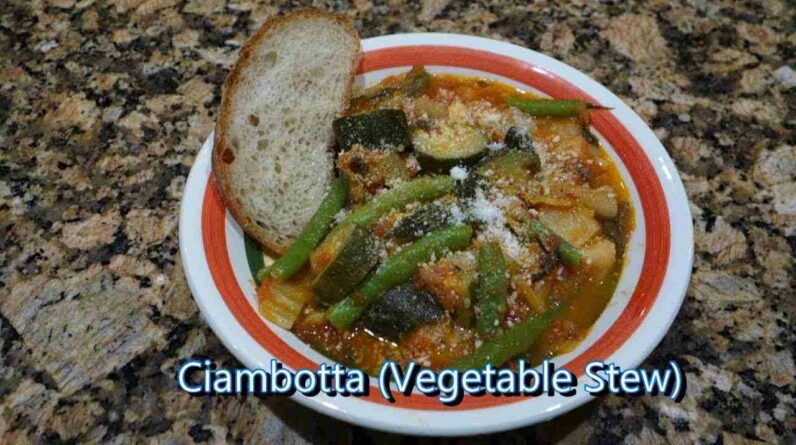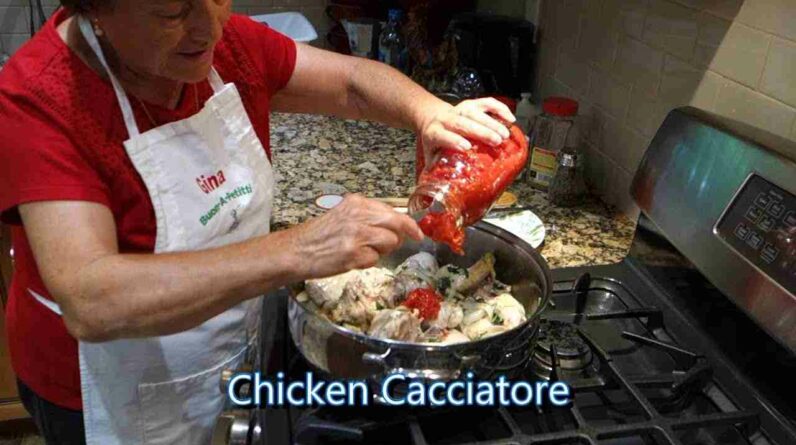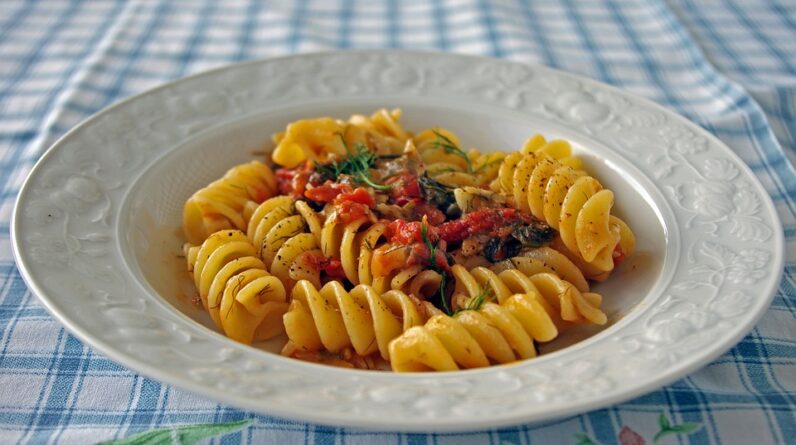Discover Traditional Italian Meals: 5 Must-Try Dishes
Italian cuisine is famous all over the world for its flavorful dishes and unique cooking techniques. From pasta to pizza, Italian food is a favorite among foodies and gourmands alike. In this article, we will explore five traditional Italian meals that are sure to tantalize your taste buds.
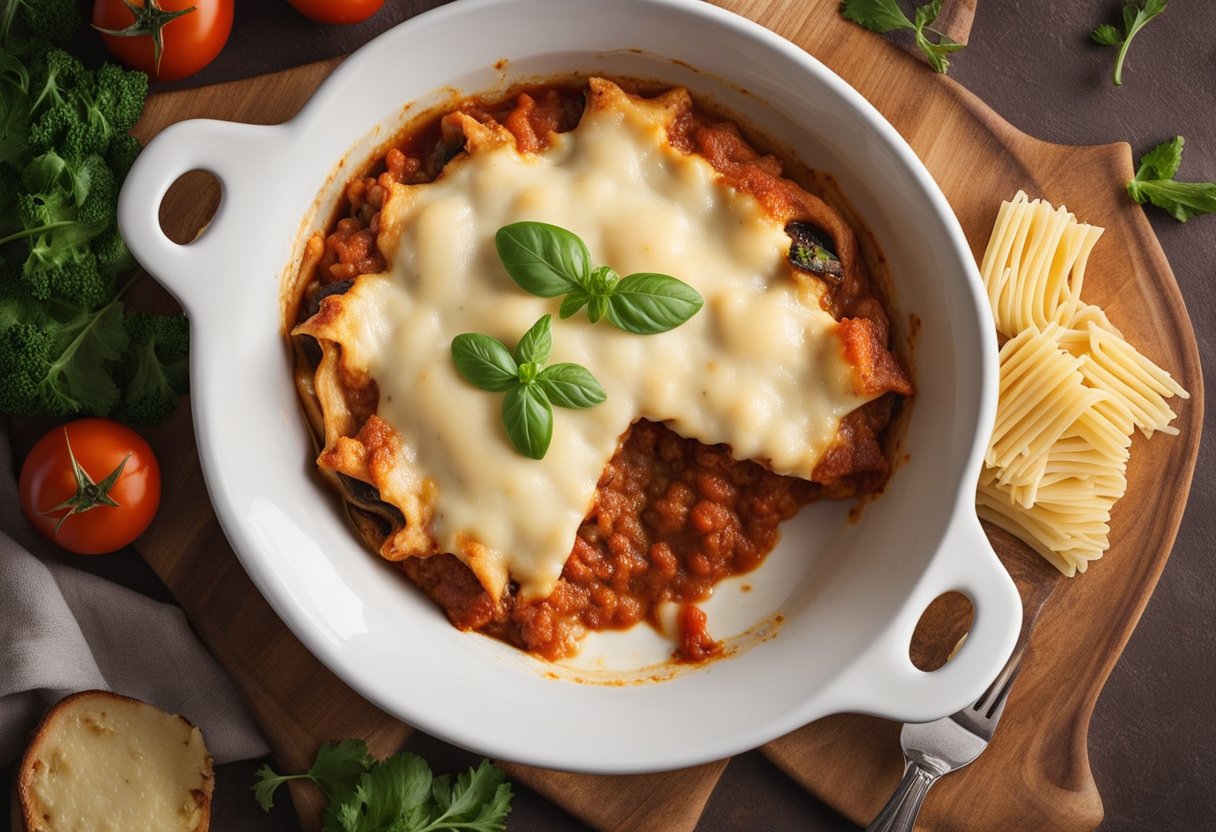
First on the list is Lasagne alla Bolognese, a classic dish from the Emilia-Romagna region of Italy. Made with layers of pasta, meat sauce, and béchamel sauce, this dish is a hearty and comforting meal that is perfect for a cozy night in.
Next up is Melanzane alla Parmigiana, a vegetarian dish that is popular in southern Italy. This dish features layers of fried eggplant, tomato sauce, and mozzarella cheese, and is often served as a side dish or appetizer. With its rich flavors and satisfying texture, Melanzane alla Parmigiana is a must-try for any Italian food lover.
Key Takeaways
- Italian cuisine is known for its flavorful dishes and unique cooking techniques.
- Lasagne alla Bolognese is a classic dish from the Emilia-Romagna region of Italy.
- Melanzane alla Parmigiana is a vegetarian dish that is popular in southern Italy.
Lasagne Alla Bolognese
Lasagne alla Bolognese is a classic Italian dish that originated in the Emilia-Romagna region of Italy. This dish has become popular worldwide and is a staple in Italian cuisine. The dish is made with layers of lasagne pasta, a rich meat sauce, and a creamy bechamel sauce.
Historical Background
Lasagne alla Bolognese is a dish that has been around for centuries. It is believed to have originated in the city of Bologna, Italy, which is known for its rich culinary traditions. The dish was first mentioned in a cookbook in the 14th century and has been a staple in Italian cuisine ever since.
Key Ingredients
The key ingredients in Lasagne alla Bolognese include:
- Lasagne pasta
- Ground beef or pork
- Tomatoes
- Carrots
- Celery
- Onion
- Garlic
- Red wine
- Beef broth
- Milk
- Flour
- Butter
- Parmesan cheese
Cooking Method
To make Lasagne alla Bolognese, the first step is to make the meat sauce. This is done by browning the ground beef or pork in a pan and then adding chopped onions, garlic, carrots, and celery. Once the vegetables are soft, tomato sauce, red wine, and beef broth are added. The sauce is then simmered for several hours until it is thick and rich.
Next, the bechamel sauce is made by melting butter in a pan and then adding flour to create a roux. Milk is slowly added to the roux, whisking constantly, until a creamy sauce is formed.
To assemble the lasagne, a layer of meat sauce is spread on the bottom of a baking dish, followed by a layer of lasagne pasta. Another layer of meat sauce is added, followed by a layer of bechamel sauce and a sprinkle of Parmesan cheese. This process is repeated until all the ingredients are used up.
The lasagne is then baked in the oven until the pasta is cooked and the cheese on top is melted and golden brown. Lasagne alla Bolognese is a hearty and satisfying dish that is perfect for a cozy night in or a special occasion.
Melanzane Alla Parmigiana
Dish Origin
Melanzane Alla Parmigiana is a classic Italian dish that originated from the Southern regions of Italy, particularly Sicily and Campania. The dish is a staple in Italian cuisine and is popular throughout the country, with each region adding its own unique twist to the recipe.
Main Components
Melanzane Alla Parmigiana is a vegetarian dish that is made with layers of sliced eggplants, tomato sauce, mozzarella cheese, and Parmigiano-Reggiano cheese. The eggplants are first sliced and then fried until they turn golden brown. The tomato sauce is made with fresh tomatoes, garlic, and basil, which are simmered together until the sauce thickens. The mozzarella cheese is sliced and placed on top of the eggplant slices, and the Parmigiano-Reggiano cheese is grated and sprinkled on top of the tomato sauce.
Preparation Technique
To prepare Melanzane Alla Parmigiana, the eggplants are first sliced and then salted to remove any bitterness. After salting, the eggplant slices are left to rest for about 30 minutes before being rinsed and patted dry. The eggplant slices are then coated in flour and fried until golden brown. The tomato sauce is made by sautéing garlic in olive oil, adding fresh tomatoes and basil, and cooking the mixture until it thickens. The eggplant slices are then layered in a baking dish with the tomato sauce and mozzarella cheese. The dish is then baked in the oven until the cheese is melted and bubbly.
Melanzane Alla Parmigiana is a delicious and hearty dish that is perfect for vegetarians and non-vegetarians alike. The dish is easy to prepare and can be served as a main course or as a side dish.
Pollo Alla Cacciatora
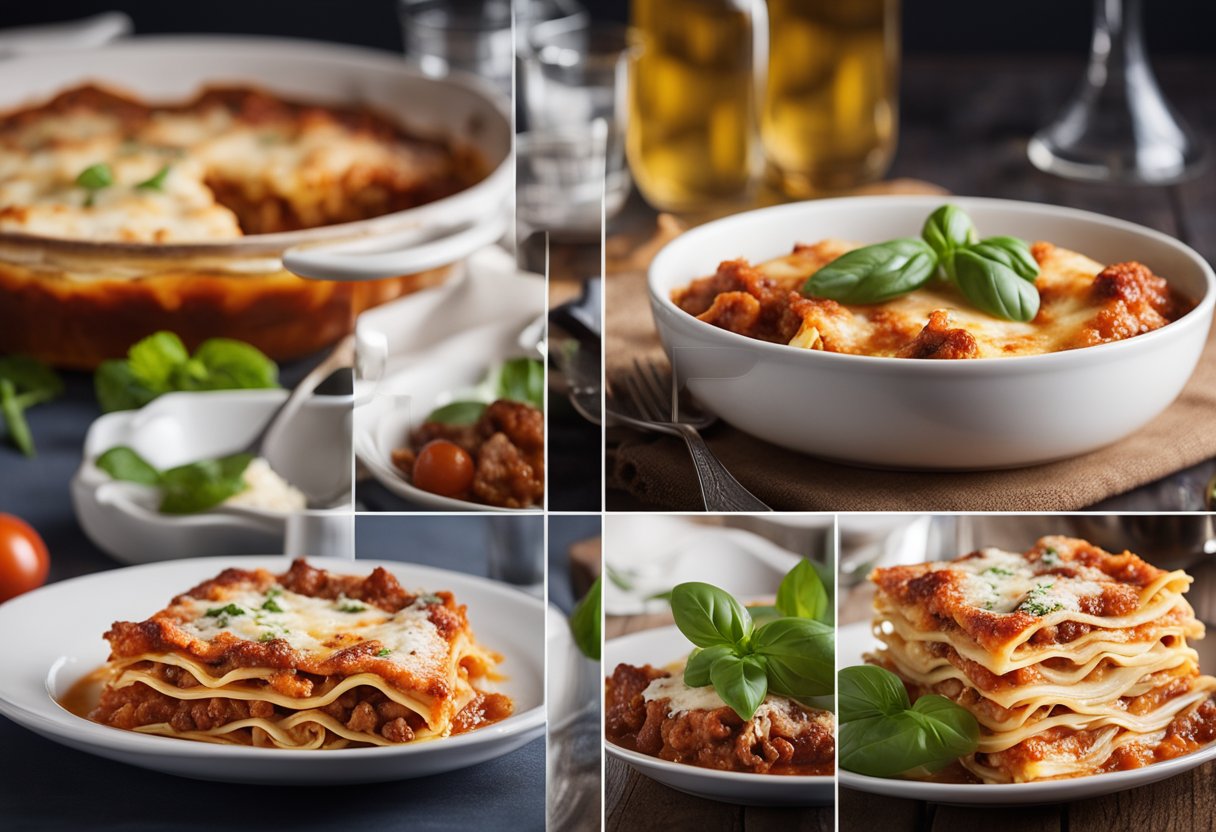
Regional Variations
Pollo Alla Cacciatora, also known as Chicken Cacciatore, is a popular Italian dish that originated in Tuscany. However, it has since spread throughout Italy and has many regional variations. In some regions, the dish includes olives, capers, and anchovies, while in others, it may be made with rabbit or pork instead of chicken.
Essential Ingredients
The essential ingredients for Pollo Alla Cacciatora are chicken, tomatoes, onions, garlic, and herbs. The dish is typically made with bone-in chicken pieces, such as thighs and drumsticks, which are browned in a pan before being simmered in a tomato-based sauce with onions, garlic, and herbs. The herbs used can vary, but rosemary and thyme are common choices.
Culinary Process
To make Pollo Alla Cacciatora, first, the chicken is seasoned with salt and pepper and then browned in a pan with olive oil. Once the chicken is browned, it is removed from the pan, and onions, garlic, and herbs are added. The vegetables are sautéed until they are soft, and then canned tomatoes are added to the pan. The chicken is then returned to the pan and simmered in the sauce until it is fully cooked and tender.
Pollo Alla Cacciatora is a flavorful and hearty dish that is perfect for a cozy dinner at home. Its rustic and simple preparation makes it a popular choice in Italian households and restaurants alike.
Costoletta Alla Milanese
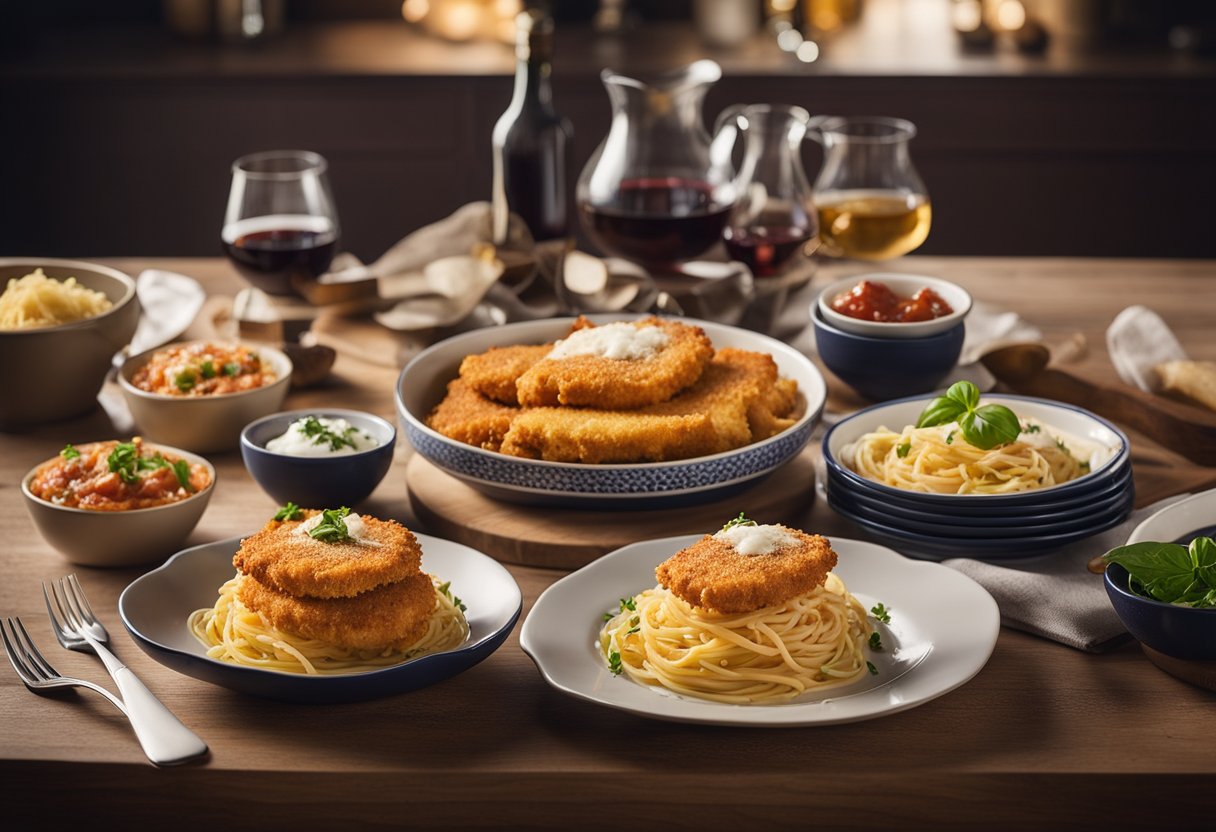
Cultural Significance
Costoletta Alla Milanese, also known as Milanese-style veal cutlet, is a traditional Italian dish that originated in Milan. It is a popular dish served in many restaurants across Italy and has gained popularity in other countries as well. The dish is typically served as a main course and is often accompanied by a side of potatoes or a simple salad.
Ingredient List
The dish is made using veal chops, which are pounded thin and then breaded and fried. The breading is made using breadcrumbs, Parmesan cheese, and parsley. The veal chops are typically served with a wedge of lemon on the side.
| Ingredients |
|---|
| Veal chops |
| Breadcrumbs |
| Parmesan cheese |
| Parsley |
| Egg |
| Flour |
| Salt |
| Pepper |
| Lemon |
Preparation Steps
To prepare Costoletta Alla Milanese, the veal chops are first pounded thin and then seasoned with salt and pepper. They are then coated in flour, followed by a mixture of beaten eggs and Parmesan cheese. Finally, the veal chops are coated in breadcrumbs mixed with parsley.
The veal chops are then fried in oil until golden brown on both sides. They are typically served hot with a wedge of lemon on the side.
In conclusion, Costoletta Alla Milanese is a delicious and traditional Italian dish that is easy to prepare and perfect for any occasion. Its simple yet flavorful ingredients make it a popular choice for those looking for a classic Italian meal.
Vitello Tonnato
Dish Evolution
Vitello Tonnato is a traditional Italian dish that originated in the Piedmont region of Italy. The dish is believed to have been created in the 19th century by a group of wealthy aristocrats who were looking for a new way to serve veal. Over time, the dish has evolved to include a variety of different ingredients and preparation methods, but the core elements have remained the same.
Core Ingredients
The dish is made up of thinly sliced, cold veal that is served with a rich, creamy sauce made from tuna, anchovies, capers, and mayonnaise. The sauce is typically seasoned with lemon juice, white wine, and olive oil, and is often garnished with sliced lemons and capers. The veal is usually cooked in a broth that is flavored with vegetables and herbs, and is then chilled before being sliced and served.
Serving Tradition
Vitello Tonnato is traditionally served as an appetizer or a main course, and is often accompanied by a variety of different side dishes. It is typically served cold, which makes it an ideal dish for warm weather or for serving at outdoor events. The dish is also often paired with a crisp, dry white wine, such as a Pinot Grigio or a Sauvignon Blanc, which helps to balance out the rich flavors of the sauce and the veal.
Overall, Vitello Tonnato is a classic Italian dish that has stood the test of time. Its unique combination of flavors and textures make it a favorite among food lovers around the world, and its rich history and tradition make it a true culinary treasure.
Frequently Asked Questions
What are the traditional ingredients used in Lasagne alla Bolognese?
Lasagne alla Bolognese is a classic Italian dish that originated in Bologna, a city in northern Italy. The traditional ingredients used in this dish include fresh pasta sheets, beef or pork mince, tomato sauce, béchamel sauce, Parmigiano-Reggiano cheese, and a few other ingredients. The pasta sheets are layered with the meat sauce and béchamel sauce, and then baked in the oven until golden brown.
How do you properly pronounce Lasagne alla Bolognese?
Lasagne alla Bolognese is pronounced as “la-ZAHN-yeh alla bo-lo-NYE-zeh”.
What distinguishes Melanzane alla Parmigiana from other eggplant dishes?
Melanzane alla Parmigiana is a traditional Italian dish that originated in the southern regions of Italy. The dish is made with eggplants, tomato sauce, mozzarella cheese, Parmigiano-Reggiano cheese, and basil. The eggplants are sliced and fried before being layered with the tomato sauce and cheese, and then baked in the oven until golden brown. What distinguishes this dish from other eggplant dishes is the use of Parmigiano-Reggiano cheese.
Can you describe the preparation process for Pollo alla Cacciatora?
Pollo alla Cacciatora is a traditional Italian dish that is made with chicken, tomatoes, onions, garlic, and herbs. The chicken is first browned in a pan, and then simmered in a sauce made with tomatoes, onions, garlic, and herbs. The dish is typically served with crusty bread or polenta.
What are the key characteristics of an authentic Costoletta alla Milanese?
Costoletta alla Milanese is a traditional Italian dish that is made with veal cutlets, breadcrumbs, eggs, and butter. The veal cutlets are pounded thin, coated in breadcrumbs and eggs, and then fried in butter until golden brown. The dish is typically served with a wedge of lemon and a side of arugula salad.
How is Vitello Tonnato typically served and what are its main components?
Vitello Tonnato is a traditional Italian dish that is made with thinly sliced veal, a sauce made with tuna, anchovies, capers, mayonnaise, and lemon juice. The dish is typically served cold, with the veal slices arranged on a platter and covered with the tuna sauce. The dish is often garnished with capers, lemon wedges, and parsley.

